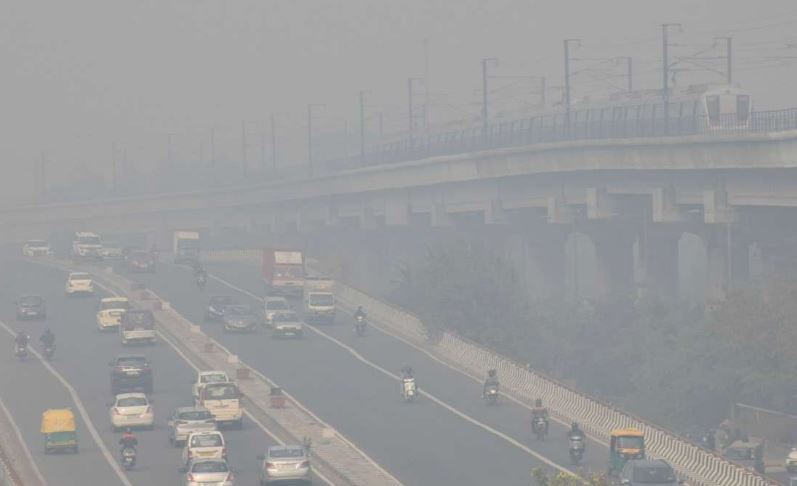New Delhi: Residents of the national capital will have to breathe “severely” polluted air as the air quality further deteriorated in the past 24 hours, as per the data shared by Delhi Chief Minister Arvind Kejriwal Sunday evening.
“The Air Quality Index was recorded at 404 (readings of 401 and above is ‘severe’). PM10 was 401 (351 to 430 is ‘very poor’) and PM2.5 was 276 (251 and above is ‘severe’),” the Chief Minister informed on social media.
As the PM10 level went over 300, the System of Air Quality and Weather Forecasting And Research (SAFAR) has issued a health advisory stating that sensitive people should consider reducing prolonged or heavy exertion and heavy outdoor work.
The PM2.5 level was under the “very poor” category.
The air quality is categorised as “good” when the AQI is between 0 to 50, “satisfactory” between 51-100, “moderate” between 101-200, “poor” between 201-300, “very poor” between 301-400, “severe” between 401-500, and “hazardous” at over 500.
SAFAR advised the sensitive groups to avoid all physical activity outdoors and move activities indoors, and asthmatics should keep relief medicine handy.
In its general advisory for all people, it urged people to stop outdoor activity in the early morning and after sunset.
“Avoid prolonged or heavy exertion. Go for a short walk instead of a jog and take more breaks. Stop any activity level if you experience any unusual coughing, chest discomfort, wheezing, breathing difficulty, or fatigue. If the room has windows, close them. If the air conditioner provides a fresh air intake option, keep that closed,” the advisory read.
It further asked people to avoid burning of wood, candles or incense.
“Keep the room clean – don’t vacuum. Do wet mopping to reduce dust. Masks known as N-95 or P-100 respirators may only help if you go out,” according to the advisory.
Delhi, generally, has good to satisfactory air quality. However, the pollution levels spike during October to February due to various factors including stubble burning, road dust, vehicle pollution, and cold weather, leading to a deterioration in the AQI.
